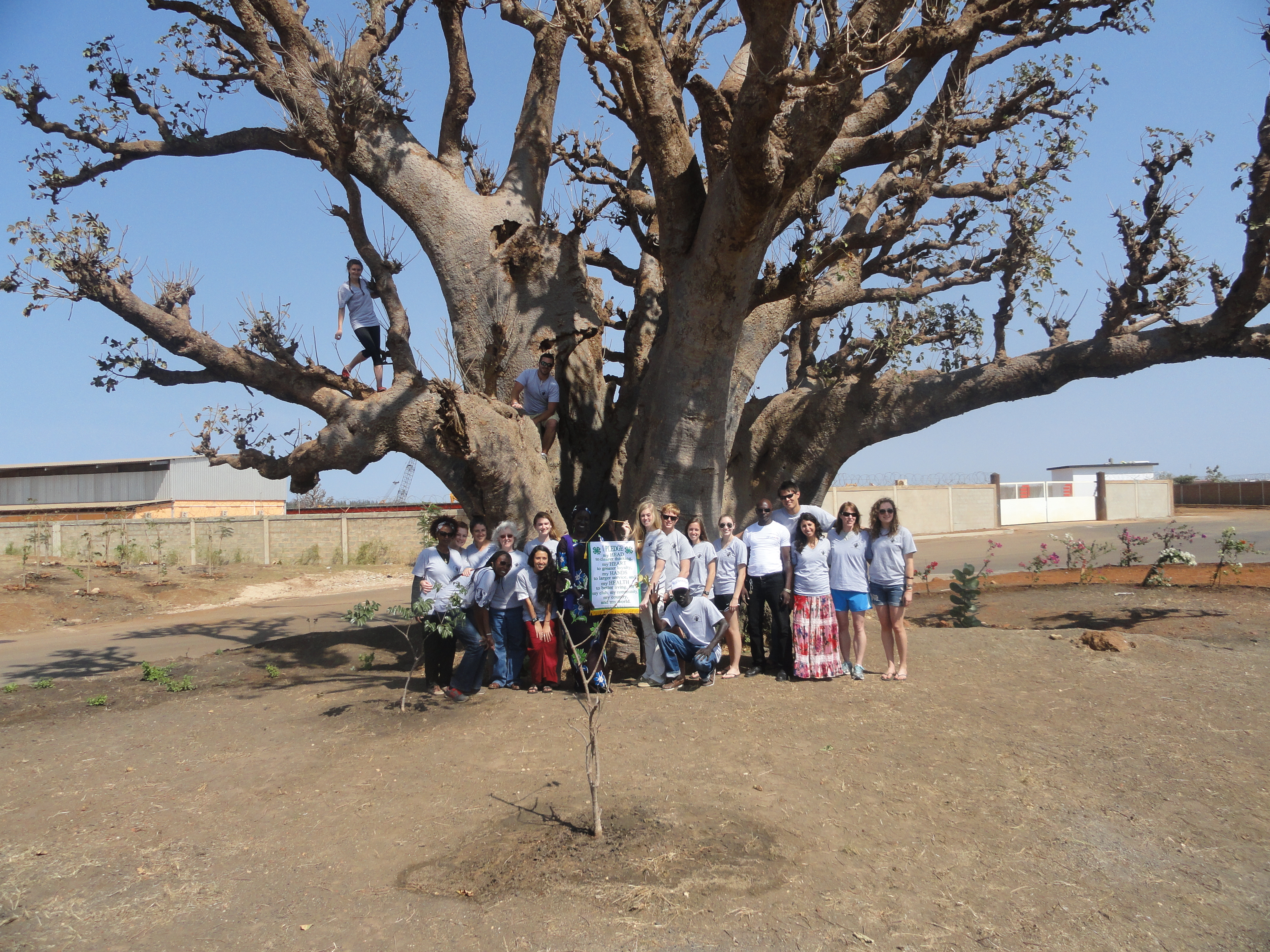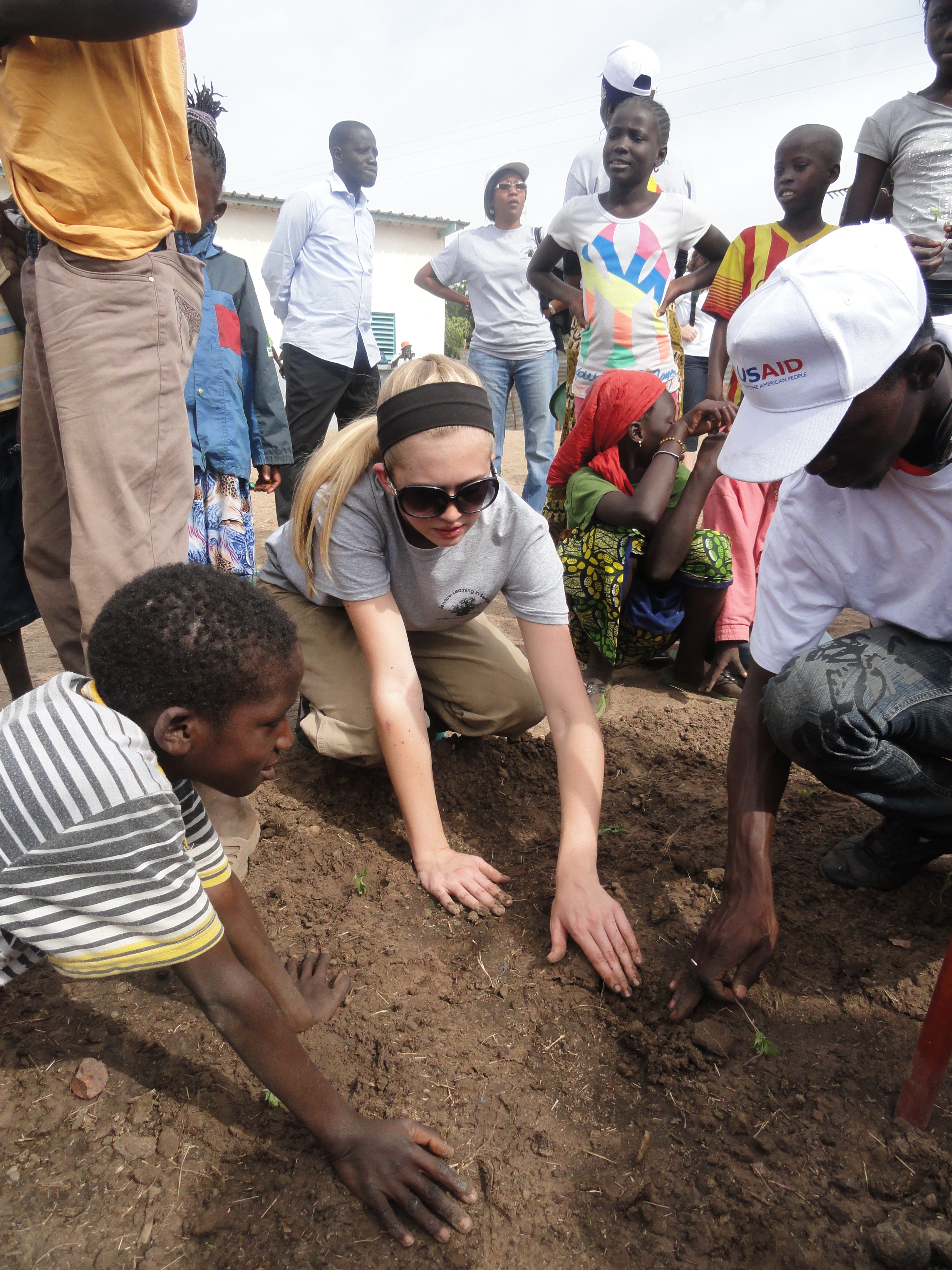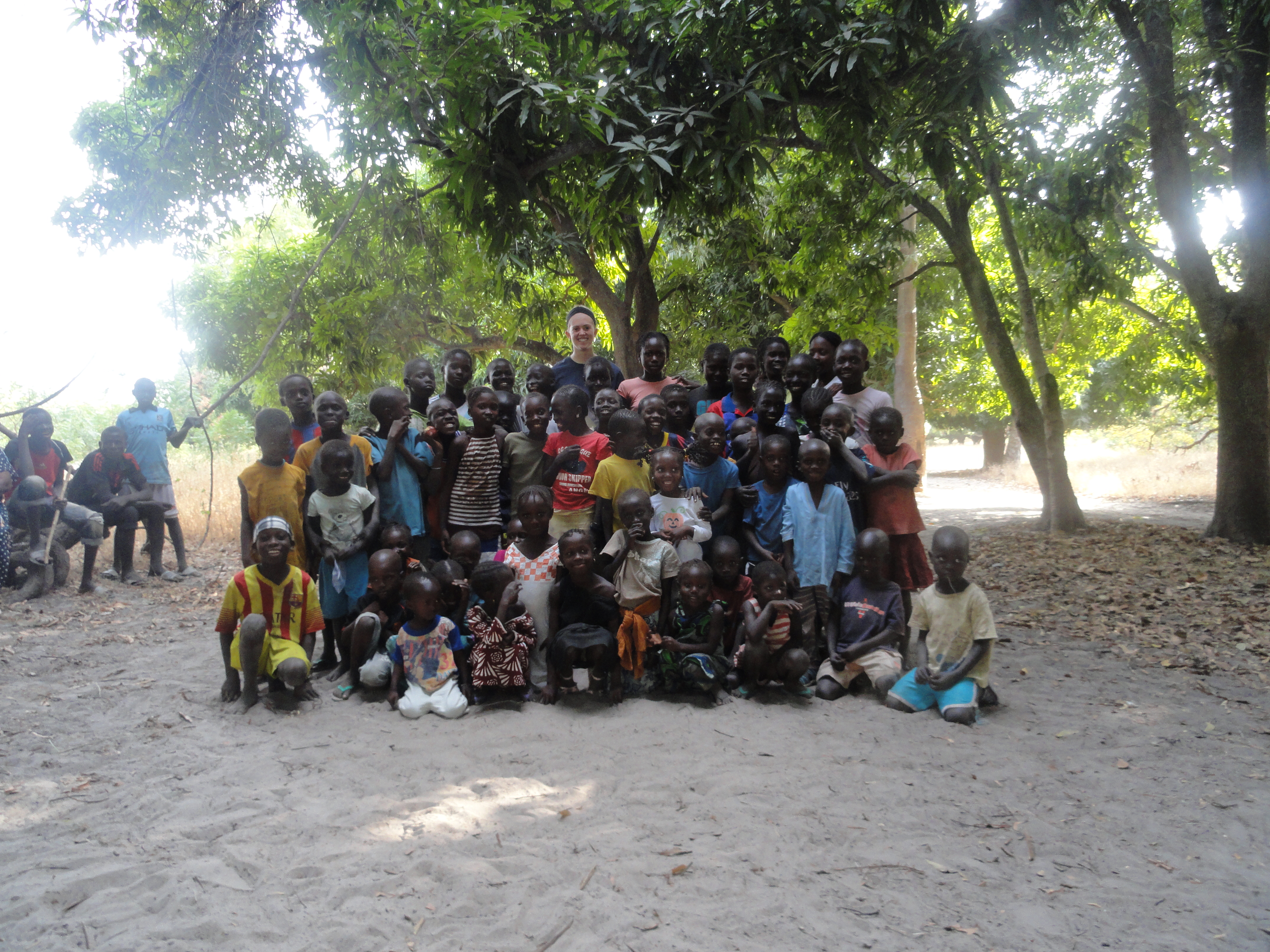
Kaitlyn introducing the first 4-H flag in Senegal to Bineta under the Baobab tree with her classmates and instructors from Virginia Tech
It all started out when I was sitting in my first day of classes at Virginia Tech. Dr. Cindy Wood, Animal and Poultry Sciences Department Professor, was telling our class about a new study abroad program that students would have the opportunity to participate in over winter break. I never would have imagined that was something I would do, so I didn’t think much of it. As the next couple of weeks went on, she kept announcing it, and I started to think more and more about it. I finally decided that I would at least look up where in the world Senegal was located. When I found out it was in Africa, I was hesitant at first. After another week passed, I started to look into what participants were going to be doing while there, and I decided that it seemed interesting and it seemed like something that would be a really good experience. I finally decided to apply and see where that got me, and a few weeks later I found out that I was accepted to go on the trip. I was so nervously excited!
Preparing for the trip was probably the most stressful part. We had meetings once a week from when we were accepted to go and up until we left. During the meetings we discussed what we would be doing in Senegal, we learned a little bit about their culture and a little bit about the agriculture there, and we tried to learn some French, which is the primary language there. As the trip go closer, I started to prepare things to take over with us. One of my most exciting preparations was getting together 4-H youth development items to take and leave over there. I also prepared many games to play with the youth in the villages.
When it was time to depart, we thought we would never make it over there due to flight complications, but we finally did! When we first arrived, it was so much to take in! We went through customs and got our bags with no complications. Once we did that, as we started to walk out of the airport, all of a sudden we all heard “Let’s Go HOKIES!!!!!!” in the most exciting screams I have ever heard. This was when I first met Bineta. She visited Virginia last year to learn about 4-H youth development programs in hopes to bring information back to her country to get something similar started. I had heard so much about her during pre-departure meetings with 4-H staff, and I was so excited to finally meet her.
While we were in Senegal, we worked closely with USAID/ERA, which is who Bineta works through. They were our chauffeurs and translators during the trip. Without them, we couldn’t have gotten where we did, we would have ordered food not knowing what it was we would be receiving, we wouldn’t have gotten good deals at the market, but most importantly, the trip wouldn’t have been nearly as much fun and enjoyable if they weren’t there to accompany us.
We did many activities while we were there and we learned a lot. The activities we did included Djouj Bird Sanctuary, Reserve de Bandia, Goree Island (Slave Island), a tapestry, two French owned farms and a locally owned farm, the University of Gaston Berger, Saint Louis (which is the closest University to land grant in Senegal), and the Holy city of Touba. While in Touba, we got to go inside the biggest mosque in Senegal, and it was so beautiful. The best and most rewarding experience I had while in Senegal was going to the village and meeting all of the farmers and villagers.
Our main focus on the trip was in Toubacouta, a very small, rural part of Senegal, where many villages are located. Here we did several activities and projects and also introduced prototypes to help the farmers better their production. One of the prototypes we took over there was a silage compactor. For those who don’t know much about silage, it has to be compacted to ensure that no oxygen will be present within the bag so that fermentation can take place. We also took a water purifier that will help them to be able to have better cleaned water that would be better for them to drink. They really liked that prototype and wished there was a way to be able to have it reach all the way to the bottom of their wells. The reason for that being so they would pull up fresh water rather than pulling it up and then having to purify it. Another prototype that we discussed, but didn’t take with us was a seeder. The current seeder that they have is inefficient and spits out too many seeds with each rotation, so we were thinking of possibly creating disks that have smaller holes so they wouldn’t waste as many seeds when planting. Some of the projects we did included planting trees at the local community center, planting a garden at a local primary school, and working with the youth. My overall favorite part of the trip was doing the youth development activities in the village. The only thing we got to do was play games, but it was very rewarding. There were approximately fifty children and youth present when we played the games. It was so awesome to be able to see the boys and girls playing together and having such an enjoyable time. Their favorite game was Duck, Duck, Goose – they actually said Sheep, Sheep, Donkey, because those are more widely known animals by the younger children. When they were playing the games, they were so fascinated that it made it seem like they had never really played games like that before that had instructions and that the boys and girls could play together.
Looking back at the experience I had, I would definitely say, without a doubt, that it was life changing, and I will never be more thankful and glad for my curiosity those first couple of weeks of school. Learning and experiencing their culture has also made me more grateful than I ever have been before. In Senegal, everyone was so grateful, and you always saw smiles on everyone’s faces. We are spoiled, spoiled individuals that let the smallest things upset us. We have life so easy compared to the Senegalese people, yet we have more ungrateful people than they do…something isn’t right about that, and I will never go a day without thinking about that now that I have experienced it first-hand.


